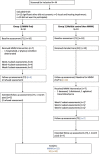A 'Music, Mind and Movement' Program for People With Dementia: Initial Evidence of Improved Cognition
- PMID: 31379638
- PMCID: PMC6646671
- DOI: 10.3389/fpsyg.2019.01435
A 'Music, Mind and Movement' Program for People With Dementia: Initial Evidence of Improved Cognition
Abstract
Background: Music is being increasingly used as a therapeutic tool for people with dementia. Research has uncovered several qualities of music that are responsible for its beneficial effects. Based on the identification of seven therapeutic capacities of music, we devised the Music, Mind, and Movement (MMM) program and evaluated whether it had therapeutic benefit for people with dementia (various types) in the areas of cognition, mood, identity, and motor fluency.
Methods: The MMM program involved seven 45-min weekly group sessions, and individual 15-min "booster" sessions. Twenty people with mild to moderate dementia participated. Group 1 (n = 10) completed the MMM program first and Group 2 (n = 10) acted as a wait list control for 7 weeks, receiving standard care and completing the MMM program after the first group. Assessments of global cognition (Addenbrooke's Cognitive Examination, ACE-III), mood (Geriatric Depression Scale short form), identity ('I am' task), and fine motor skills (9-Hole peg task) were conducted at baseline (T1), time 2 (T2, post treatment), and time 3 (T3, 1 month post MMM program).
Results: Within group comparisons were conducted with 12 participants from the MMM program and 10 participants receiving standard care. Global cognition (total ACE-III score) improved in 8/12 participants after the MMM program, whilst it decreased in 8/10 participants after the period of standard care. MMM participants showed increases in ACE-III subdomain scores of attention (p = 0.007) and verbal fluency (p = 0.056).
Conclusion: Our preliminary findings suggest that the MMM program may improve cognition, particularly verbal fluency and attention, in people with dementia.
Keywords: attention; cognition; dementia; fluency; movement; music; therapeutic.
Figures







References
-
- Altenmüller E., Schlaug G. (2013). Neurologic music therapy: the beneficial effects of music making on neurorehabilitation. Acoust. Sci. Technol. 34 5–12. 10.1250/ast.34.5 - DOI
LinkOut - more resources
Full Text Sources
Miscellaneous

